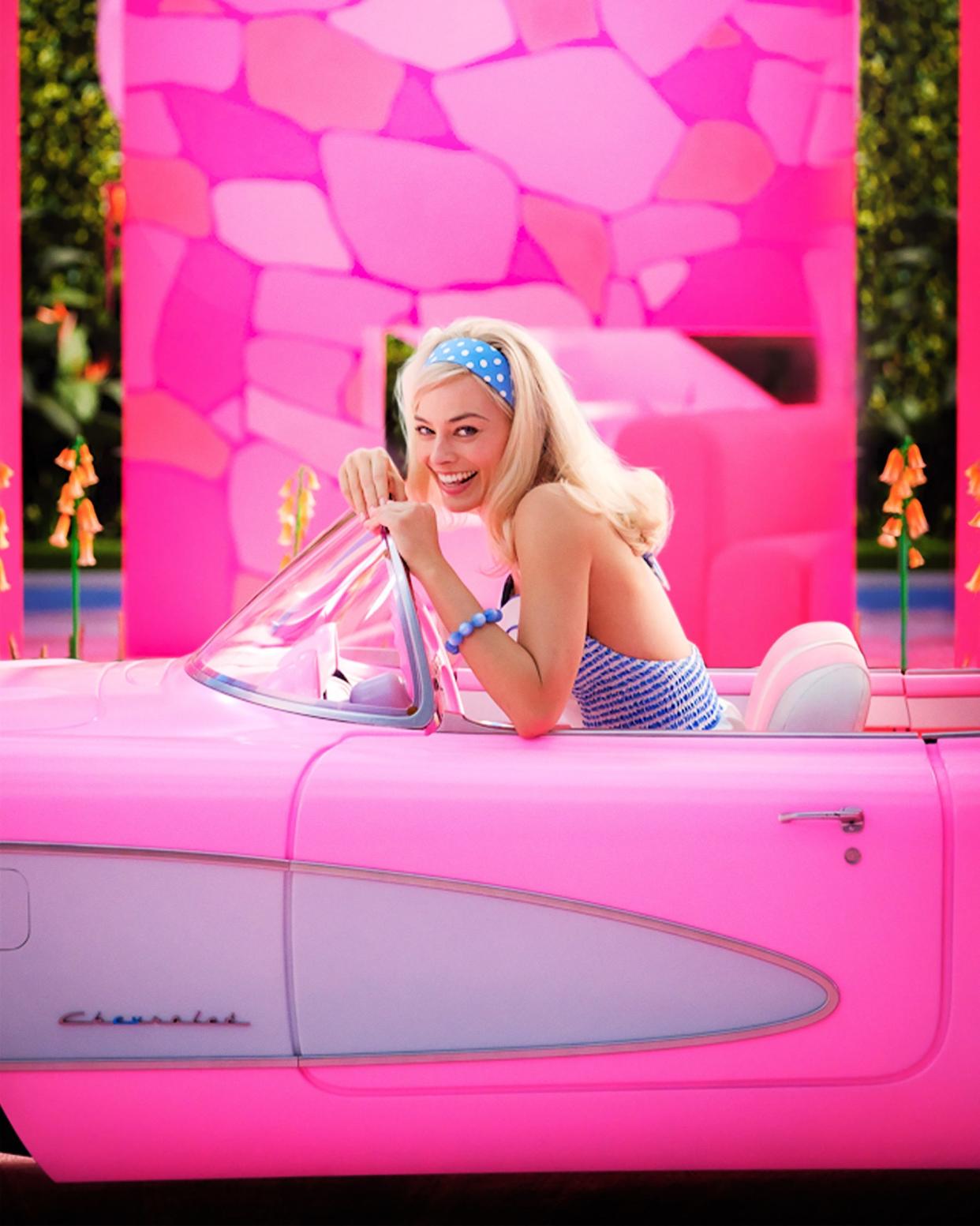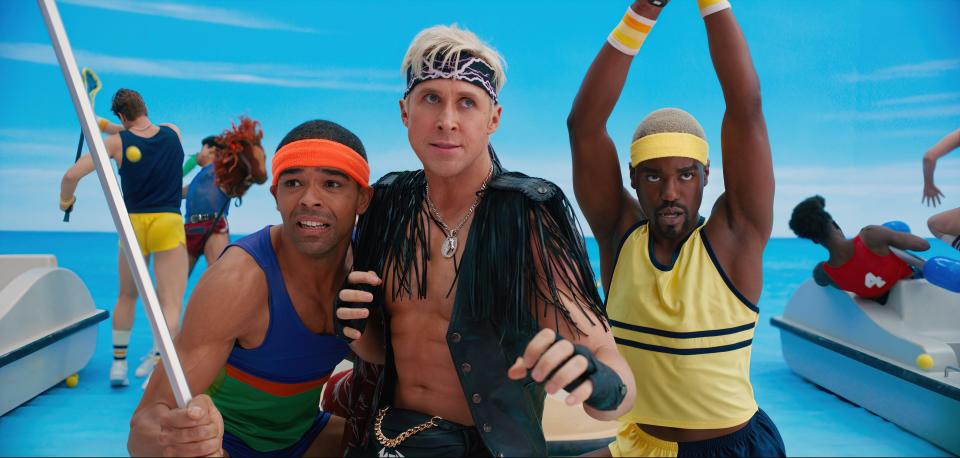Review: 'Barbie' is not the movie you think it is

In this review, we'll walk through Greta Gerwig's "Barbie" bit by bit, analyzing it along the way. If you consider such summary a spoiler, I'll save you the trouble and tell you what I think now.
I enjoyed watching "Barbie." It was a fun experience. The shots were beautifully designed, the dialogue was witty and Ryan Gosling put on the performance of a lifetime. But Gerwig spends far too much screen time analyzing what it means to make a Barbie movie in 2023, and far too little time actually telling that story.
The result is a smattering cinematic collection of philosophical conversations about the historical relation between Barbie and the feminist movement, broken up by comedic relief from Gosling, Kate McKinnon and Simu Liu, and strung together by the story of how Barbie and her real-world owner use their philosophical conversations to destroy the growing patriarchy in Barbie society.
With that in mind, I don't think the following review spoils the movie, not because I don't think "Barbie" is worth seeing (I think it definitely is), but because the story is not the point of the movie. Gerwig agreed to make this movie so that audiences would think critically about Barbie's role in feminist history and, in turn, think critically about the ever-present role of patriarchy in our society.
On that front, Gerwig achieved her goal, tenfold. On the advertising for Barbie and Mattel front, twentyfold. But on the storytelling and good-movie-making front, not as much.
Introduction: Barbie World
Greta Gerwig's much anticipated "Barbie" starts out exactly as everyone anticipated.
Margot Robbie, Issa Rae and the Barbies wake up wearing pink, floating down from their open-air doll houses, greeting each other with "Hi Barbie!" and "Hi Barbie!" and running their world with smiles and ease. Meanwhile, Ryan Gosling, Simu Liu and the Kens hang about the beach, urgently seeking the Barbies' attention. This is the expected, and rather amusing, Barbie-life-as-usual.
And then things change.
"Do you guys ever think about dying?" Barbie-Robbie wonders aloud at a Dua Lipa dance party. The music cuts out: this is not normal. Then, the next morning, rather than float down from her house, she falls on her face. Then she has flat feet. And then, worst of all, cellulite!
This is where the movie starts in earnest. It is also where Greta Gerwig's highly anticipated happy-go-lucky comedy ends and the history lesson of Barbie and the feminist movement begins – with Ryan Gosling's charisma carrying the audience between drawn-out, philosophical dialogue.
Plot I: Barbie travels to the real world
Barbie-Robbie (and Ken-Gosling) must travel to the real world, find the child that is morphing Barbie's figure and cheer that child up to make everything perfect again.
When Barbie-Robbie and Ken-Gosling adventure into the real world, they discover a new phenomenon: the patriarchy. Male construction workers cat-call Barbie. Policemen ride proudly above the crowd on horses. A mother even asks Ken for the time!
Barbie and Ken react very differently to this discovery. Barbie becomes overcome with confusion and emotion for the first time in her Barbie-life, especially when she realizes Barbie might not have been a positive influence on female minds and the feminist movement. Ken becomes infatuated. The idea that he might be in charge is novel and exciting to playtime's historically impotent side character. So Ken decides to bring the patriarchy back to Barbie World.
Meanwhile, Barbie-Robbie's real-world owner, Gloria (America Ferrera), and Gloria's daughter Sasha (Ariana Greenblatt), help Barbie-Robbie run away from Mattel executives (Will Ferrel and company) who want to put her back in a toy box. Barbie-Robbie leads the unlikely trio back to Barbie World, but when they arrive, the place looks nothing like before: the patriarchy has changed everything.

The Kens have left their residences on the beach and have taken over the Barbies' doll houses. Barbies that had formerly been physicists and Nobel prize-winning writers and presidents have all but abandoned their posts to support the new patriarchal order, serving the Kens "brewsky-beer" on command.
Plot II: Destroying Ken's patriarchy
It is now up to Barbie-Robbie and her motley crew of rebels to solve the problem of the patriarchy in Barbie World. After Ferrera's Gloria offers a rejuvenating, earnest and seemingly spot-on speech about the plight of being female in a patriarchal world, the motley crew of patriarchy rebels devises a plan: isolate each spell-bound Barbie and have Ferrera give them a feminist speech until they realize their mistake. Somehow, this works, and one by one, post-lecture, every Barbie returns to her normal feminist self. The takeaway from this sequence seemed to be that a hearty lesson in feminist theory is all it takes to free women from the psychological shackles of patriarchy.
Once all the Barbies returned to their right states of mind, it was time to fix the Kens, which they achieve by playing with the Kens' hearts and turning them against each other. The battle of the Kens leads to by far the best scene in the movie, with Ryan Gosling breaking out in song for "I'm Just Ken." In the midst of the battle, the Kens forget to rewrite the Barbie World constitution, and the Barbies take back control.
I struggle to decipher a deeper point there. Is the Kens losing power a simple expression of male stupidity? I doubt it. Is the Kens' loss of power supposed to represent the modern female experience? That would be strange. The other option, however, is that Barbie's destruction of the patriarchy in Barbie World bears little relation with the struggle to do the same in the real world. Somehow that is even more unsatisfying.
Conclusion: Question marks
"Barbie" ends in something of a spirit world. Barbie-Robbie and the ghost of Barbie's creator, Ruth Handler (Rhea Perlman), walk through a pink-lit empty space. Another heady, philosophical discussion ensues about how Barbie is not a person, but an idea – and, therefore, cannot die.
It's a puzzling note to end on.
Yours truly, Ken-Medintz
This article originally appeared on Cincinnati Enquirer: Greta Gerwig's 'Barbie' is a comedic feminist philosophy party musical
